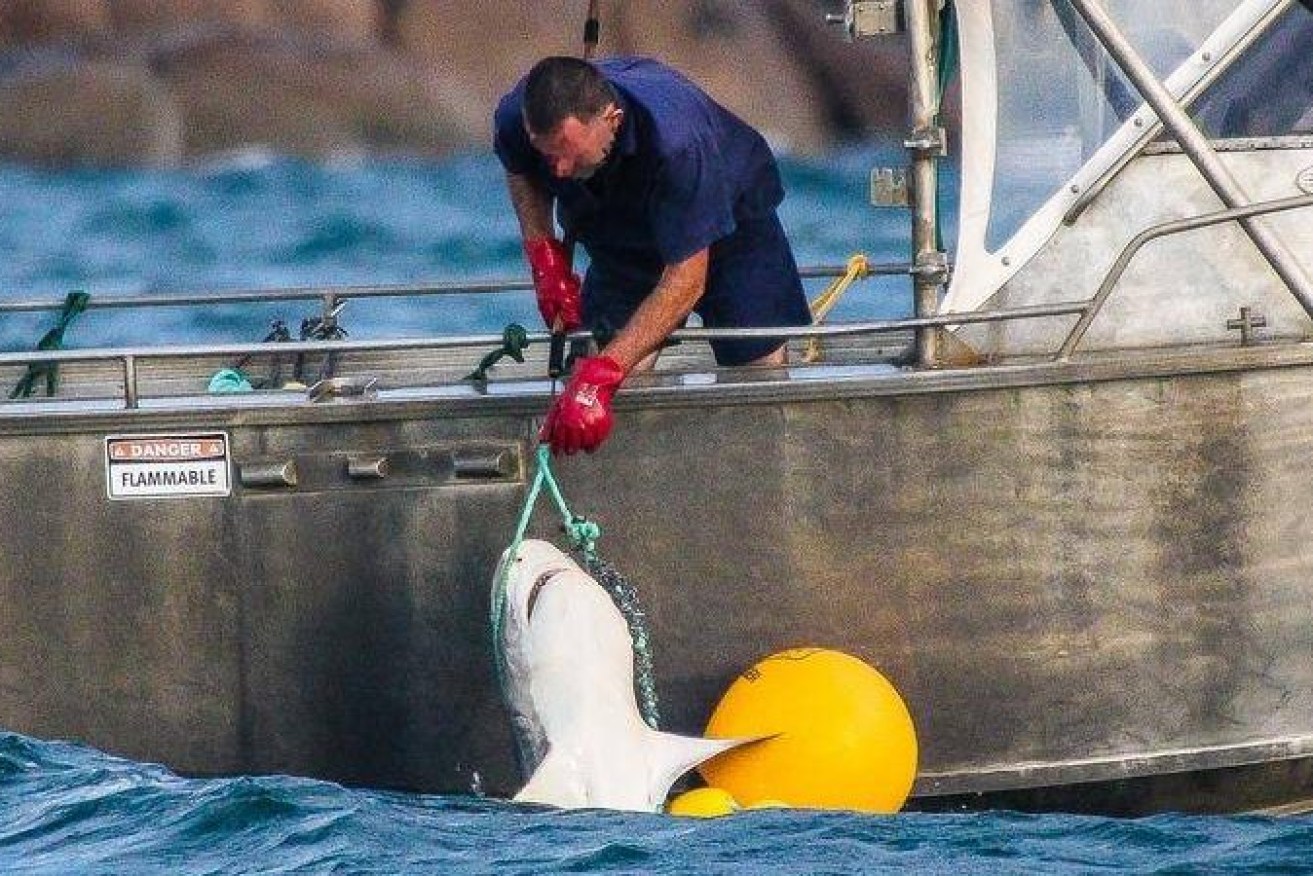Dead in the water: Shark kills take a massive bite out of government’s reef record
Almost 500 sharks in the highly sensitive Great Barrier Reef Marine Park have been killed in a State Government control program in less than two years, potentially shredding any claims that ‘ambitious, rapid and sustained’ action is being taken to protect the fragile ecosystem.


Leading ecologists are horrified by the size of the shark cull on the Great Barrier Reef. (File image).
Despite the shocking death rate from the government’s Shark Control Program (SCP), Agriculture Minister Mark Furner has committed to maintaining the program, suggesting its withdrawal would compromise human safety.
“We are committed to continual improvement, but we will not make changes until we find effective alternatives that are proven to be suitable for Queensland conditions,” he told InQueensland.
“The Palaszczuk Government will not compromise the safety of water users and will continue to invest in the Shark Control Program (SCP).”
The figures have alarmed Griffith University’s internationally renowned marine ecologist and specialist in aquatic mammals Dr Olaf Meynecke, who said shark species were already under strong pressure from overfishing and habitat degradation.
“Catching them on drumlines for ‘beach goer’ protection only adds to the already ongoing decline of shark species,” he said.
“The argument of catching sharks for the protection of beach goers has never been proven as a valid method by any credible research.”
Of the 753 animals caught in the region’s SCP from January 1 2020 to October 27 this year, just 278 were released alive.
The Queensland Government does not cull sharks in the Great Barrier Reef Marine Park, while the permit contractors operate under requires them to release all sharks alive unless workplace health and safety considerations make it unsafe to do so.
Accounted for in the haul were 163 bull sharks, 203 tiger sharks, 358 other sharks and 29 other species. Those released alive included 39 bull sharks, 124 tiger sharks, 92 other sharks and 23 other species.
Meynecke said the majority of sharks encountered near the Great Barrier Reef belong to six species: black tip, white tip reef shark, grey reef shark, tawny nurse shark, silver tip and scalloped hammerhead, the last of which is listed as endangered by the International Union for Conservation of Nature (IUCN).
The IUCN also lists tiger sharks and bull sharks as ‘near threatened’ which is likely to be escalated to ‘threatened’ in the near future, Meynecke said.
White sharks are listed as ‘vulnerable’.
Meynecke said all sharks captured in the government’s SCP would be suffering some level of pressure to their ongoing survival, with their removal also destabilising the environment.
“They play a major role in maintaining the balance in the ecosystem, removing sick fish as well keeping overpopulation of other fish species under control,” he said.
“They contribute to a healthy and resilient reef, which need the presence of sharks, particularly at a time of ocean warming, ocean acidification and other pressures.
“The entire marine ecosystem has evolved around sharks. We know the impact of removing predators has on land – it is the same for the ocean but likely much worse as the marine environments are all connected by water.”
Meynecke’s concerns come five years after the Palaszczuk Government established a scientific working group to provide advice to improve the SCP’s effectiveness and reduce impacts.
Last year, a trial of ‘Catch Alert’ smart drumlines, enabling contractors to respond more rapidly when an animal is captured, thereby improving the chances of releasing captured animals alive, started at four locations on the Capricorn Coast.
Furner said SCP contractors checked non-smart drumlines daily up to 260 days a year, weather permitting.
“A focus of the SCP is research to understand more about shark prevalence and behaviour through tagging and tracking sharks,” he said.
“Information about tagged sharks provides valuable information to the broader scientific community.”
The emerging details of the SCP’s track record comes after a recent UNESCO report urged “ambitious, rapid and sustained” action on climate change to protect the Great Barrier Reef.
Environment Minister Meaghan Scanlon responded to the report that her department was taking action in line with UNESCO’s recommendation.
“The Palaszczuk Government will always stand up for the reef, and has never shied away from its obligations to protect it,” she said.
Meynecke said the use of drumlines without the ‘Catch and Alert’ technology sent the wrong message.
“I think it is contradicting the call for serious efforts to protect the GBR,” he said, when asked if the SCP was at odds with Scanlon’s assessment.
“The GBR is an area of marine protection. It should aim to increase protection of all species and ensure the reef system is kept alive and thriving for the future. This will not be possible when sharks are removed.”








